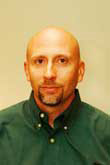Whitehurst and
Croft's study (July 20, 2010) for the Brown Center on Education Policy at
Brookings prompted a New York Times
article to reveal "Mr. Canada and his charter schools have struggled with
the same difficulties faced by other urban schools, even as they outspend them."
However, just
about a year and half earlier, David Brooks, also writing in the New York Times, had sparked the claims
of "miracle" surrounding Canada's HCZ which fueled a series of media outlets
praising these charter schools, including "President Obama
institut[ing] a Promise Neighborhoods Initiative intended to replicate the HCZ
in 20 cities across the country. The program received a $10 million
appropriation from Congress in 2010, under which 339 communities applied to the
U.S. Department of Education for planning grants to create Promise
Neighborhoods."
From the President to Secretary of Education Arne Duncan to Oprah and 60 Minutes to the controversial Waiting for Superman and the media blitz surrounding that documentary, the charter movement has been experiencing an unprecedented level of support across the political and popular spectrum.
Along with Whitehurst and Croft's cautions, however, other cracks in the move toward charter schools have been expressed, although not nearly as well publicized as the praise.
In an excerpt from the book, Ohio's Education Reform Challenges: Lessons from the Front Lines, included in Education Next, Terry Ryan, Michael B. Lafferty, and Chester Finn Jr. admit: "Sobered and a bit battered, Fordham continues as an authorizer of Ohio charter schools. . .and a vigorous participant in the state's larger education-policy debates. . . .Meanwhile, we've learned a lot about how much harder it is to walk the walk of education reform than simply to talk the talk, and about how the most robust of theories are apt to soften and melt in the furnace of actual experience."
What, then, is the truth behind the shifting support for charter schools?
� ? "Charter school" as a term and a concept has been co-opted by education reformers who support school choice and market forces over public education. The Whitehurst and Croft argument against the HCZ being cost effective is placed against Knowledge is Power Program (KIPP) charter schools: "There are 3 KIPP schools represented in the graph. All score higher than the HCZ Promise Academy." In short, charter schools of a certain kind, quasi-private schools, are welcomed as the next phase of school choice initiatives that have failed when promoting vouchers and tuition tax credits.
� ? Charter
schools are mechanisms for promoting the claims that schools can reform
society, and thus a mechanism for discounting the impact of poverty on the
learning and lives of children. Whitehurst and Croft proceed to discount
efforts such as the HCZ and traditional federal programs such as Head Start:
"In contrast to disappointing results for Broader, Bolder initiatives,
there is a large and growing body of evidence that schools themselves can have
significant impacts on student achievement." Corporate reformers are fully
invested in branding public education as a failure while simultaneously arguing
that schools can overcome social forces, despite evidence to the contrary.
� ? Charter schools are often closely associated with alternatives to traditional teacher certification and an avenue to circumventing teachers unions. Teach for America (TfA) in charter schools is one such alliance, including being represented in Waiting for Superman and standing to reap significant boosts if federal policy helps fund and support more charter schools with faculties drawn largely from TfA recruits. Focusing on bad teachers and demonizing teachers unions as the status quo have roots in corporate agendas, not school reform.
� ? Charter schools also help promote "no excuses" ideology ("new paternalism") and deficit perspectives of children living in poverty that perpetuate classist dynamics in the schools, thus exacerbating the inequities of children's lives in the schools themselves. These corrosive ideologies are further wrapped in compelling rhetoric such as the "soft bigotry of low expectations," despite the practices themselves institutionalizing racism, classism, and elitism.
By supporting
charter school initiatives that reinforce corporate agendas that seek to hide
social failures such as poverty, the Brookings Institution and the Thomas B.
Fordham Institute are unwittingly exposing the mask that is charter schools
because their research and admissions about the complexity of educational
reform confirm what we know to be the truth about charter schools--they are no
better than public schools: "And yet, this study [from CREDO] reveals in
unmistakable terms that, in the aggregate, charter students are not faring as
well as their TPS [traditional public school] counterparts. Further, tremendous
variation in academic quality among charters is the norm, not the exception.
The problem of quality is the most pressing issue that charter schools and
their supporters face."





